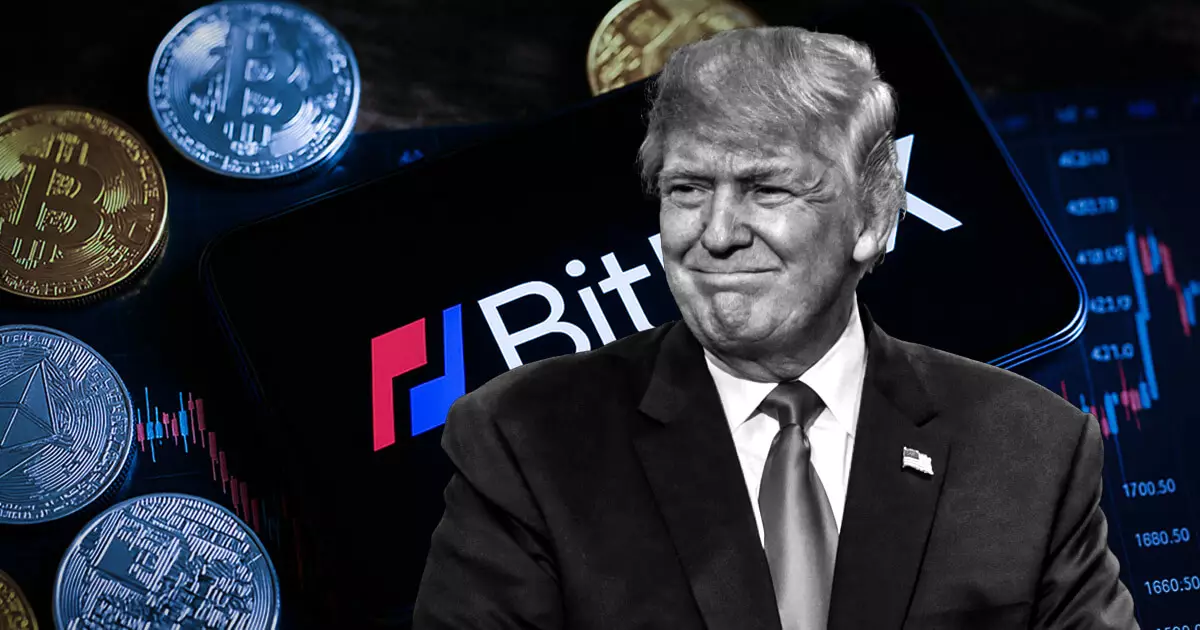The recent pardon granted by President Donald Trump to the co-founders of BitMEX—Arthur Hayes, Benjamin Delo, and Samuel Reed—has sparked a major discussion in both the legal and crypto spheres. Each of these individuals had previously pleaded guilty to violations of U.S. anti-money laundering laws, which raises crucial questions about the integrity of such pardons and their implications for the future of cryptocurrency regulations. The ramifications of these legal encounters highlight the tension between innovation in financial technologies and stringent regulatory frameworks designed to protect consumers and uphold law and order.
With their pardons, it could be argued that Trump is setting a concerning precedent for the cryptocurrency industry: if violations of law can be simply brushed away, what deterrent do companies have from future wrongful actions? Compliance in the rapidly evolving crypto space is more than just a bureaucratic hurdle; it’s a cornerstone in establishing a secure trading environment. With incidents such as these, the message sent to budding entrepreneurs might be warped, suggesting they can disregard laws and later seek a presidential pardon as a safety net. Such a narrative can undermine years of efforts to cultivate trust and credibility within the financial landscape, particularly in an emerging sector fraught with both opportunities and dangers.
The Argument for a New Legal Framework
Benjamin Delo’s remarks regarding the “outdated law” and “politicized enforcement” encapsulate a growing sentiment among many in the tech community that existing regulations do not align with the realities of contemporary financial technology. While one can empathize with the struggles of innovators aiming to push boundaries, it begs the question: should regulatory frameworks be adapted in ways that protect entities like BitMEX that operated on murky lines? These founders seem to believe that their financial transactions were merely legal gray areas, yet it is critical to understand that such gray areas can often be a breeding ground for illicit activity.
Advocacy for a recalibration of existing legal structures can often serve as a veiled excuse for many businesses looking to skirt responsibility. To defend their actions under the banner of innovation neglects the grave consequences their operation had on ethical trading practices. The crypto space, rather than being intrinsically fertile for liberation from regulatory structures, can be a dangerous domain without stringent oversight. Whether it is through improving compliance protocols or actively engaging with legislators for more nuanced laws, mechanisms must be in place to prevent exploitation and ensure accountability.
The Ripple Effect of High-Profile Pardons
The geopolitical implications of Trump’s pardons also cannot be disregarded. High-profile pardons usually generate an avalanche of backlash, and this case might very well be no different. Critics of the Trump administration have voiced concerns about favoritism and inequity in the justice system. When criminals—who knowingly flouted regulations in what was termed a hub for illicit financial activity—are absolved of their offenses, it will inevitably erode public trust in the enforcement of laws.
Are we heading toward an era where wealth and connections can shield individuals from the consequences of their actions? This instance raises troubling ethical considerations about how power dynamics play out within the United States’ legal system. New legislation is necessary, but it must also tackle the lingering impression that the wealthy can manipulate legal consequences to serve their interests. If these trends continue, the lineage of trust in regulatory bodies that protect public interest may disintegrate into disillusionment.
The BitMEX fiasco is not merely about a few individuals receiving clemency; it serves as a focal point in the larger narrative about justice, accountability, and the evolving financial landscape. As digital finance continues to veer into uncertain waters, it becomes even more imperative that policymakers and regulatory bodies reassess the framework governing these industries. A lack of scrutiny today could lead to chaos tomorrow.














Leave a Reply